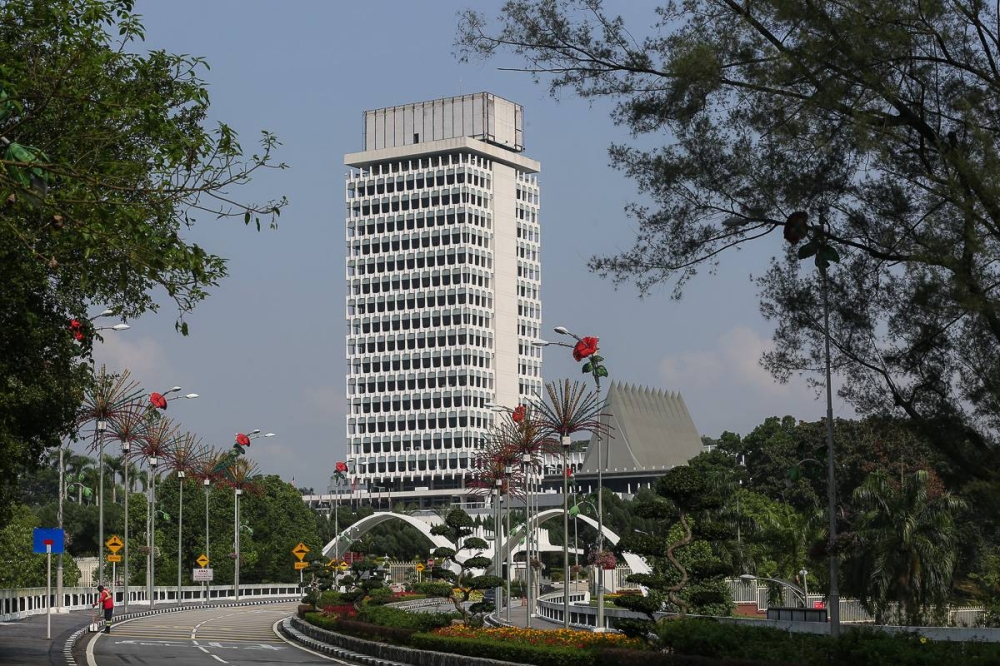OCT 7 — Article 159 of the Federal Constitution provides for the mechanism to amend the Constitution itself. The Reid Commission had recommended that the method of amending the Constitution should neither be “so difficult as to produce frustration nor so easy as to weaken seriously the safeguards which the Constitution provides.”
Under Article 159(1), some constitutional amendments may be made by an ordinary Act of Parliament, but these are limited to matters as are specified in Article 159(4).
Article 159(3) provides for the main method for effecting a constitutional amendment — that is, by a Bill passed by no less than a two-thirds majority of the total number of members of each House of Parliament (not simply the members present and voting), on the second and third readings of the amendment Bill.
What is a Bill?
A Bill is a proposal for a new legislation or law, or a proposal to change an existing law that is presented for debate before Parliament.
Article 66(1) provides that the power of Parliament to make laws shall be exercised by Bills passed by both Dewan Rakyat and Dewan Negara (or, in the cases mentioned in Article 68, the Dewan Rakyat) and assented to by the Yang di-Pertuan Agong (YDPA), except as otherwise provided in Article 66.
When a Bill has been passed by the House in which it originated — Bills can originate in either the Dewan Rakyat or Dewan Negara — it shall be sent to the other House to be passed. It must then be presented to the YDPA for His Majesty’s assent — Article 66(3). The Bill becomes law on being assented to by His Majesty, but no law shall come into force until it has been published in the Gazette — Article 66(5).

In certain special situations, however, in addition to the requirements of Article 159(3), other conditions must also be fulfilled. For example, under Article 159(5), the consent of the Conference of Rulers is required. Clause (5) reads as follow:
A law making an amendment to Clause (4) of Article 10, any law passed thereunder, the provisions of Part III, Article 38, Clause (4) of Article 63, Article 70, Clause (1) of Article 71, Clause (4) of Article 72, Article 152, or 153 or to this Clause shall not be passed without the consent of the Conference of Rulers.
Part III of the Constitution makes provisions on citizenship. Amendments to provisions on citizenship, therefore, require the consent of the Conference of Rulers.
But note the use of the word “law” in Article 159(5) and “Bill” in Article 159(3).
“Bill” and “law” are different. A Bill is a proposed law. By definition, “law” includes “written law”, which includes federal law and State law. “Federal law” means any Act of Parliament — Article 160. An Act of Parliament is a Bill passed by both the Dewan Rakyat and Dewan Negara, and assented to by the YDPA. It takes effect upon being published in the Gazette.
For an Act of Parliament — called an Amendment Act — that amends Part III of the Constitution, it requires the consent of the Conference of Rulers to become law.
So, why are the Private Member’s Bills to amend the provisions on citizenship rejected? If one of the Bills ever gets to see the light of day and passed by both Houses by a two-third majority and therefore becomes an Act of Parliament, it will only become law if consented to by the Conference of Rulers.
That said, where consent is required of the Conference of Rulers, the Conference of Rulers is entitled to be first consulted as Article 38(2) allows the Conference to deliberate on questions of national policy (citizenship may be so considered) and any other matter that it thinks fit.
So, the motion to introduce the Private Member’s Bill could be accepted. The government could adopt the Bill, making it a government Bill. The government then presents it to the Conference of Rulers before even the first reading.
*This is the personal opinion of the writer or publication and does not necessarily represent the views of Malay Mail.





















